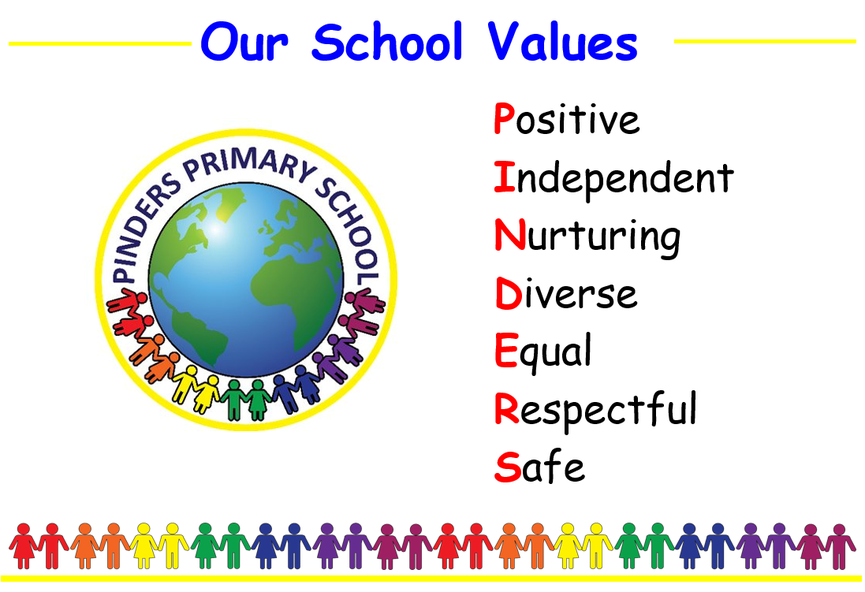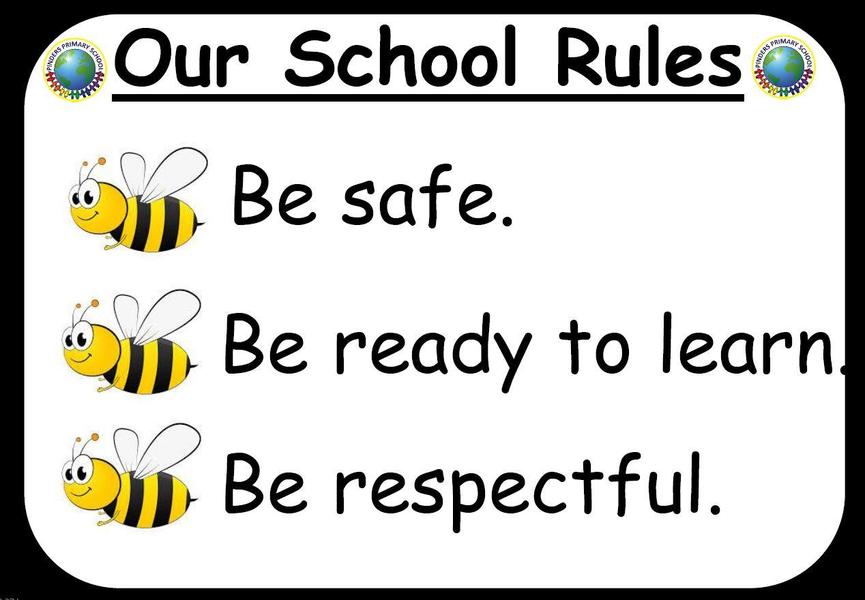Behaviour
Governors’ Written Statement of Behaviour Principles
Updated October 2024
The Department for Education requires governing bodies of maintained schools to publish a statement of behaviour principles for their school. The Governing Body therefore has a duty to produce, and review, a written statement of general principles to guide the Headteacher in determining measures to promote good behaviour and discipline amongst pupils. This statement and the behaviour policy will be reviewed on a three-yearly basis, unless changes at national or local level necessitate an exceptional review. This statement is informed by our Aims and Value Statements: This is a statement of principles, not practice. It is intended that this set of principles reflects the school values, vision and ethos and is utilised to guide the Head teacher in drawing up the whole school behaviour and relationships policy. There is an expectation that policy and the actions within be in accordance with the school responsibilities under equality legislation.
Purpose – The purpose of our behaviour policy is to illustrate that we have adopted a behaviour-focussed curriculum. Our behaviour curriculum provides all stakeholders of Pinders Primary School with an appropriate code of conduct, which encourages our school to internalise a set of key values.
In response, our children become happy, successful and able to serve our community positively. This policy should be read in conjunction with our Safeguarding (Child Protection) Policy.
Aims and Values
Our main aim is to provide quality experiences in all aspects of school life.
We aim to create a warm and welcoming environment that cultivates a respect for the rights and needs of children and adults, irrespective of culture, race or gender.
We aim to be actively involved in the learning of our children. Therefore, we provide a range of broad, creative and balanced learning opportunities, which adhere to the National Curriculum.
We use constructive feedback to signal when a child’s efforts are valued, which also avoids alienation and disaffection.
We aim to develop self-discipline and the ability to self-regulate the choices and decisions our children make.
We aim to maintain high aspirations and expectations of our children, in the anticipation of fostering independent, reflective and lifelong learners.
We aim to promote this through our whole school values:
Also, through the key British values
• Mutual respect and tolerance of those with different faiths and beliefs
• Democracy
• Rule of Law
• Individual Liberty
Key Principles
• Every child has the right to learn, but no child has the right to disrupt the learning of others.
• Everyone has a right to be listened to, to be valued, to feel and be safe. Everyone must be protected from disruption or abuse.
• The fundamental approach is a positive one, drawing attention to, rewarding good behaviour and mutual respect.
• It is expected that all adults (staff and volunteers) will provide excellent models of behaviour in all aspects of school life.
• We will seek to give every child a sense of personal responsibility for his/her own actions.
• We will communicate expectations of behaviour clearly.
• Where there are significant concerns over a pupil’s behaviour, we will share the strategies we use with parents, working in an active partnership to promote good behaviour.
• Early support and intervention will be issued at the earliest opportunity;
• Strategies will be recorded where there is a high level of concern through a daily log.
• We will seek advice and support from appropriate outside agencies.
• We will constantly seek to inform ourselves of good practice and strategies to further improve behaviour and attitudes. This may be through research, books, attendance on courses and advisory visits. It will be a high priority to disseminate such ideas throughout the staff.
• There will be a whole-school approach but with due regard to individual circumstances.
This statement and our Behaviour and Relationships Policy will be reviewed on a three-yearly basis, unless changes at local or national level necessitate a review.
Behaviour


‘Education must develop every child’s personality, talents and ability to the full. It must encourage the child’s respect for human rights, as well as respect for their parents, their own and other cultures and the environment.’
At Pinders PrimarySchool, we ensure a positive, aspirational ethos pervades at all times. We are committed to high standards of conduct from all our community. To this end, all stakeholders have developed and agreed a comprehensive behaviour policy (available from the school). Key drivers for this are a ‘Praise and Reward ’ and a ‘Consequences’, which are detailed in this policy.
Promoting Positive Behaviours
Research suggests that, especially with primary-aged children, reaffirming positive behaviour that the child is already doing, is cognitively far easier to conceptualise than telling the child to behave in a way that they are not currently doing.
Restorative Support
At Pinders Primary, if behaviour escalates beyond low-level, a member of staff discusses this with the pupil and guides them through a restorative process. The focus is to help the child reflect on the thoughts and feelings that are driving the behaviour, but also the consequences of their behaviour and how it has affected others. The goal is to identify any needs of the pupil, identify strategies to resolve and repair the issue and equip the pupil with the self-awareness to regulate their own behaviour moving forwards.
Rewards
Every child deserves the chance to be noticed for doing the right thing and making good choices and every child deserves the chance to be shown that good things happen when they make good choices. Therefore we use a range of rewards across school:
Other Praise and Rewards
- Class awards
- Verbal praise from an adult
- Stickers
- Headteacher sticker
- Applause
- Verbal praise from a friend
- Standing up in assembly
- Gestures, eg. smiles
- Badges /award pins
- Positive comments in school books
- Certificates and prizes
- Star of the Week award
Consequences and sanctions
When a pupil’s behaviour does need challenging, Class teachers give a verbal warning to a child who is not following the School Rules or making good behaviour choices. This warning encourages the child to stop what they are doing and reflect on how they can improve. Children are encouraged to make a positive change in their behaviour.
If a child’s behaviour is so serious that it is considered extreme then a child parents are notified as this is considered unacceptable behaviour.
Every day is a new day. No child will be treated differently because of a choice they made on a previous day. It is very important that all children recognise that they have a fresh start and a new opportunity to have a green light day.
The school uses sanctions as a last resort, but avoids them if other strategies can be used. Sanctions can include moving seats within the class, loss of break time, referral to the Headteacher or behaviour/inclusion team. When an extreme incident is logged, an incident form is generated automatically from the system and the pupil’s name, teachers, class, date, time and all the lead up behaviour is input into the form.
Sanctions Ladder
- Reminders: eye contact, facial expression, gestures
- Verbal warning
- Reflection – Time Out
- Class teacher speaks to parent/guardian.
- Pupil is sent to Senior Leader for repeated misbehaviour, or at initial stage if misbehaviour is serious
- SLT speaks to parent/guardian
- Parent invited to meeting with Senior Leader to decide on action plan
- Pupil on daily report to Senior Leader
- Governors informed of misbehaviour
- Final warning given to pupil and parent
- Exclusion – fixed term
Working Together - Parental Support
Encouraging excellent behaviour is a priority for our school, but of course, we need parental support to ensure that children understand the system and want to behave well at school and at home.
We believe that school and parents working together can positively impact on a child's behaviour. Teachers will speak honestly, but positively with you about your child's behaviour. They may share strategies and ask for your input in putting together behaviour plans. Equally, teachers are more than happy to give advice and support to you.
